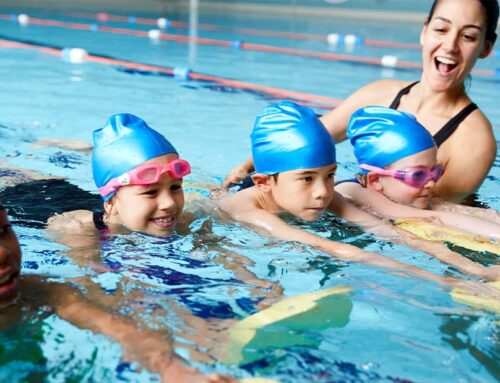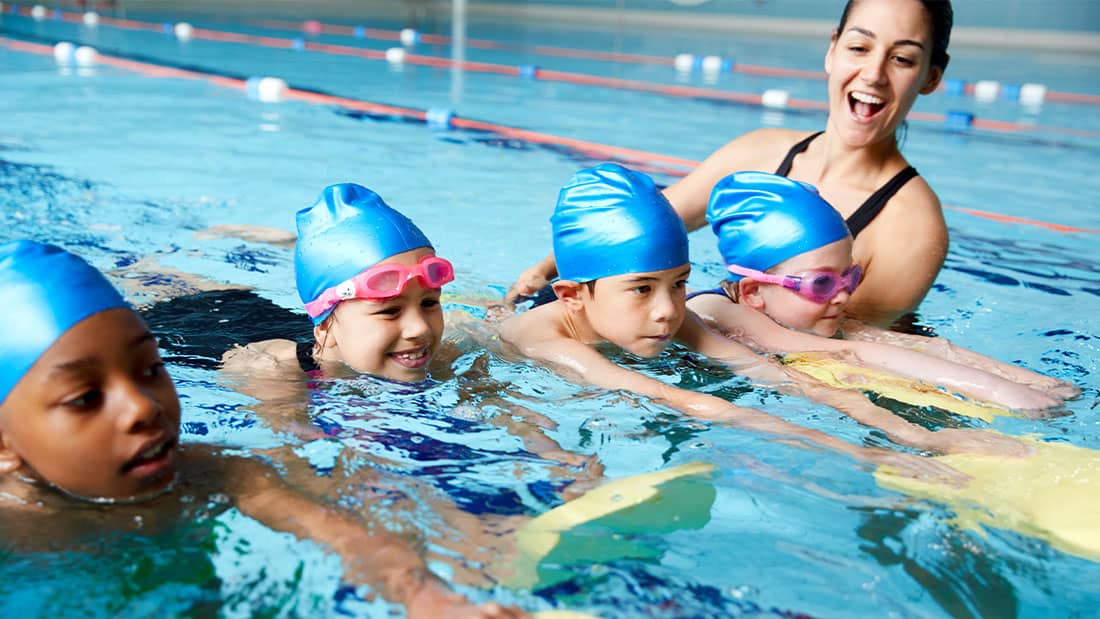5 Mental Skills That Successful Athletes Have in Common
There are great athletes and there are athletes who could have been great. An athlete with incredible physical prowess and skill might be able to outrun, out-throw, outshoot anyone they play against, but physical skill and strength are not the only parts of the equation.
An athlete who is undisciplined, unfocused and unmotivated is as useless to a team as someone with no strength or training whatsoever. An athlete who currently lacks the mental skills necessary to be great can change their mindset and transform themselves into an incredible asset to any team.
1. A Positive Attitude
Athletes depend on two things—skill and drive. You can easily measure and improve your skill, but your drive is more difficult to improve or adjust. It is impossible to drive yourself with a defeatist or even realistic attitude; as an athlete, your job is to believe that every score, every yard, every win is possible and within your grasp. You also need to be able to accept and understand what happens when those scores, yards and wins don’t happen. You need a positive attitude.
2. A Sense Of Motivation
Beyond simply having a positive attitude, the best athletes are self-motivated to play their game as best as possible. They are deeply devoted to succeed and can keep the hype alive in themselves when the need arises. The best athletes need to see success as attainable, reachable, and important even when they have been less than successful. And most important, an athlete needs to feel that being in the game itself is a reward, that winning is not the only way to measure success. By valuing the game itself, you see each individual game as having value outside of whether you win or lose, and you are able to put your all into every game regardless of your chances of winning.
3. Emotional Control
When you’re anxious, excitable, frustrated or even exuberant, your emotions might get in the way of the game if you let them run wild. Even positive emotions can make skilled athletes let their guard down and make clumsy mistakes. Some degree of anxiety and excitement can be helpful in a game, as it keeps athletes on their toes, aware of their surroundings and eager to succeed, but only if the athlete is able to control those emotions and put them on the back burner when more pressing matters in the game require their concentration.
4. The Power of Concentration
Athletes face a number of distractions on the field, including external action and internal fears. While playing and training, a good athlete needs to have the ability to concentrate entirely on the game. Just like a good cellphone signal booster, their mind needs to be laser focused on their role and the game plan.
You need to let your fear of failure and your anxiety about the outcome of the game disappear. You need to tune out the actions of the other team.
Sometimes losing concentration is inevitable; unpredictable things happen on the field. A good athlete will be able to refocus on the game and on their place in it in order to keep moving forward.
5. Clear Goals For Improvement
Along with concentration comes goal setting. Athletes need to be capable of setting short-term, achievable goals for themselves to improve. Athletic goals need to be short-term enough to be always immediately relevant while being high enough to be something you have to strive for—something to make an athlete extend his or her reach just a little bit higher.
Goals can be skill-based (such as throwing a ball a foot farther) or game-based (trying to get one more yard, one more score before the half time.) These allow you to be able to stay focused and feel rewarded while providing continuous improvement in manageable chunks.
Mental fortitude is equally as important as physical strength and skill in an athlete. These skills work together to create a specific mindset that every athlete can take into any game. By controlling your emotions, your focus, and your attitude, you have every possibility of being an incredible athlete.
READ MORE:
RECOMMENDED FOR YOU
MOST POPULAR
5 Mental Skills That Successful Athletes Have in Common
There are great athletes and there are athletes who could have been great. An athlete with incredible physical prowess and skill might be able to outrun, out-throw, outshoot anyone they play against, but physical skill and strength are not the only parts of the equation.
An athlete who is undisciplined, unfocused and unmotivated is as useless to a team as someone with no strength or training whatsoever. An athlete who currently lacks the mental skills necessary to be great can change their mindset and transform themselves into an incredible asset to any team.
1. A Positive Attitude
Athletes depend on two things—skill and drive. You can easily measure and improve your skill, but your drive is more difficult to improve or adjust. It is impossible to drive yourself with a defeatist or even realistic attitude; as an athlete, your job is to believe that every score, every yard, every win is possible and within your grasp. You also need to be able to accept and understand what happens when those scores, yards and wins don’t happen. You need a positive attitude.
2. A Sense Of Motivation
Beyond simply having a positive attitude, the best athletes are self-motivated to play their game as best as possible. They are deeply devoted to succeed and can keep the hype alive in themselves when the need arises. The best athletes need to see success as attainable, reachable, and important even when they have been less than successful. And most important, an athlete needs to feel that being in the game itself is a reward, that winning is not the only way to measure success. By valuing the game itself, you see each individual game as having value outside of whether you win or lose, and you are able to put your all into every game regardless of your chances of winning.
3. Emotional Control
When you’re anxious, excitable, frustrated or even exuberant, your emotions might get in the way of the game if you let them run wild. Even positive emotions can make skilled athletes let their guard down and make clumsy mistakes. Some degree of anxiety and excitement can be helpful in a game, as it keeps athletes on their toes, aware of their surroundings and eager to succeed, but only if the athlete is able to control those emotions and put them on the back burner when more pressing matters in the game require their concentration.
4. The Power of Concentration
Athletes face a number of distractions on the field, including external action and internal fears. While playing and training, a good athlete needs to have the ability to concentrate entirely on the game. Just like a good cellphone signal booster, their mind needs to be laser focused on their role and the game plan.
You need to let your fear of failure and your anxiety about the outcome of the game disappear. You need to tune out the actions of the other team.
Sometimes losing concentration is inevitable; unpredictable things happen on the field. A good athlete will be able to refocus on the game and on their place in it in order to keep moving forward.
5. Clear Goals For Improvement
Along with concentration comes goal setting. Athletes need to be capable of setting short-term, achievable goals for themselves to improve. Athletic goals need to be short-term enough to be always immediately relevant while being high enough to be something you have to strive for—something to make an athlete extend his or her reach just a little bit higher.
Goals can be skill-based (such as throwing a ball a foot farther) or game-based (trying to get one more yard, one more score before the half time.) These allow you to be able to stay focused and feel rewarded while providing continuous improvement in manageable chunks.
Mental fortitude is equally as important as physical strength and skill in an athlete. These skills work together to create a specific mindset that every athlete can take into any game. By controlling your emotions, your focus, and your attitude, you have every possibility of being an incredible athlete.
READ MORE:












